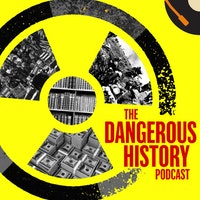Do you appreciate hearing opinions from those who’ve been to war? If so, you’ll be intrigued by these emotional interviews with an honest war veteran.
I’ve shared my pro-peace philosophies with locals as I’ve traveled around the world. Furthermore, while traveling without a job, I’ve had a lot of free time. This has allowed me to find some great podcasts. I’d like to share with you a few deeply meaningful episodes from a top-notch podcast.
A professor and an honest war veteran talk about war
A libertarian, college history professor has done a series of extremely deep, moving interviews with a US Army veteran of the Iraq and Afghan Wars. All four, hard-hitting episodes are completely filled with non-stop, brutal truth about the wars.
The host’s name is CJ. The veteran goes by “BT” to protect his anonymity.
The first interview
Link to the interview. Things discussed:
- The 9/11 attacks. The propaganda that followed it. The effects on people who’ve enlisted in the military.
- The origins of the 2003 Iraq War. Some of the problems with the Bush administration’s justifications for war.
- The invasion of Iraq. The mounting problems as the invasion turned into an occupation, with a special focus on the city of Mosul.
- The beginning of BT’s time in the Army, starting in 2005. The training he went through prior to deploying to Iraq. The many shortcomings of that training.
The second interview
Link to the interview. Things discussed:
- BT’s first deployment to Iraq. The conditions in Mosul and surrounding areas where he was deployed. The shortcomings of his training relative to what he’d actually be dealing with.
- Problems unique to dealing with a counterinsurgency situation in an urban environment, including IEDs.
- Potential issues of friendly fire.
- Problematic thoughts and behaviors that BT noticed, both in himself and from observing others. The cause: the stressful environment of operating in a war zone, especially one in which insurgents blended in with the civilian population.
- The different types of IEDs and vehicle bombs (VBIEDs). The US military’s attempts to deal with these. The back-and-forth race between makers of IEDs and designers of counter-measures.
The third interview
Link to the interview. Things discussed:
- Thoughts on various people using veterans (or “the troops”) as pawns in their ideological narratives. The NFL/kneeling-during-the-anthem controversy.
- BT’s first deployment to Iraq. He was a Cavalry Scout in and around Mosul.
- BT’s second deployment to Iraq. He was a Blackhawk crew chief and mechanic in Baghdad.
- BT’s deployment to Afghanistan. Again, working on Blackhawks.
- Multiple cases in which BT got in trouble for pointing out safety issues with the helicopters.
- Some of the negative fallout to his mental and physical health. The damage to his relationship with his family due to his military service.
The fourth interview
Link to the interview. Things discussed:
- BT’s physical & mental health issues since leaving the Army. The problems he’s had in trying to get adequate help from the Department of Veterans Affairs (or VA).
- PTSD
- Head trauma
- Burn pits & Gulf War illness
- How BT’s experience in the Army and dealing with the VA have changed his views on many things. His overall take on his military experience.
The truth about war
After listening to those four interviews, you’ll understand war much better. Stories like these can be taken from any war. BT is a good person who’s been in war and isn’t afraid to tell the truth. He’s been courageous to intimately share so much with us.
I’m sure this would be difficult, but someday, I hope he has even more courage, puts a face to the name, and goes fully public. Teenaged Americans need to hear more unvarnished truth like this before the sign away their lives to the US military.
Peace.







